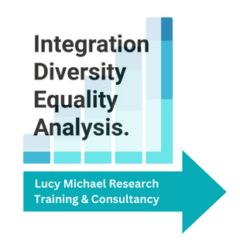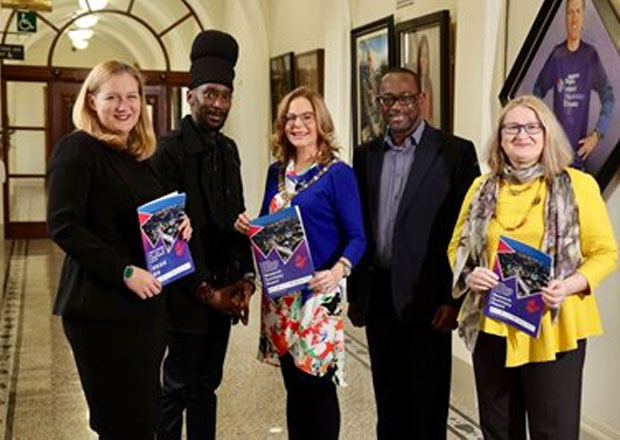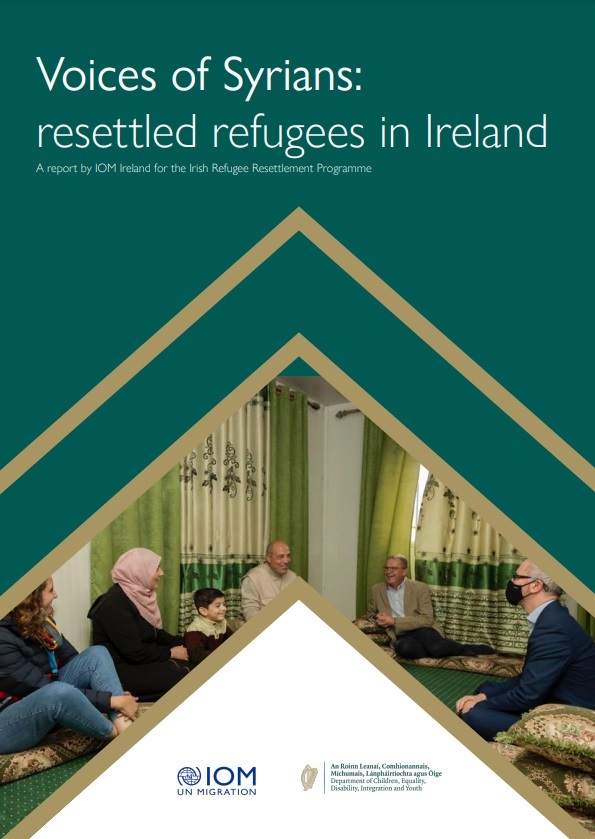
We hope December is a joyful month for you, full of friends and fun, as well as or despite the serious work to be done.
If you enjoy our newsletter please forward it to someone else who might enjoy it too! We always welcome your feedback on how we can update you about our various activities in a convenient and timely way.
Subscribe to our monthly news email
Our current research

Political participation of persons with disabilities
The UN CRPD sets out political participation rights clearly in Article 29, but how available are they in practice?We are currently undertaking desktop research for FRA on access to political participation in Ireland – expect the report out next year.

Policing experiences of Brazilians and People of African Descent in Ireland
We are currently finishing up our work with INAR on the independent research commissioned by the Policing Authority for submission in early 2024. Grateful thanks to all who facilitated and supported the research on this sensitive topic, and especially to our participants.
Recently completed research

Black and Black-Irish artists access to funding and opportunities
We recently completed this report for the Arts Council, including interviews with artists and arts organisations, and we look forward to publication early in the new year.

Child Protection in the EU
We just finished working with the EU Fundamental Rights Agency to update its 2016 mapping of child protection systems in the EU. This is part of its work in Integrated Child Protection Systems. We look forward to sharing the relaunched map in 2024.
Recently published research

Disabled Persons Organisation (DPO) Coalition Consultation Report
This Consultation Report presents the views and experiences of disabled people in Ireland based on 672 surveys and 8 focus groups. It was created in advance of the Irish Government presenting to the United Nations Committee on the Government’s work to implement the Convention on the Rights of Persons with Disabilities (UN CRPD) to offer an alternative report on the realities faced by disabled people in Ireland today. Read it here

Equality Data and Arts Council Awards 2022
The Arts Council published our analysis of last year’s funding across gender, ethnicity and disability. Read it here.

Anti-Muslim Hatred Database Update
The database provides an overview of relevant international, European and national case law and decisions. It also provides findings of national human rights bodies related to anti-Muslim hatred incidents, such as violence, property offences, incitement to violence or hatred, other forms of hate speech, discrimination, harassment. In addition, it provides relevant research findings, including reports, studies and statistics on these issues, as well as information on victims’ support organisations providing support to victims of hate-motivated crime. See the Irish data here.

Fundamental Rights Report 2023
The Annual Report 2023 reviews major developments in the field in 2022, with particular attention this year to: Support for human rights systems and defenders; Asylum, migration and borders;Data protection, privacy and new technologies; Equality, non-discrimination and racism; Justice, victims’ rights and judicial cooperation

Protecting civil society – Update 2023
Civil society organisations struggle to maintain an environment safe from threats and attacks. FRA’s sixth annual update on civic space explores the challenges for organisations across the EU.

The Russian aggression against Ukraine – Displaced children finding protection in the EU
More than 1.3 million children sought international protection in the EU. This bulletin explores the respect, protection and fulfilment of the fundamental rights of displaced children and ways to safeguard their rights.
This month we are thinking about…

We are still talking about Gaza
Keep raising your voices, keep sending your support and solidarity. For a list of upcoming events through December, see www.ipsc.ie/
After the Dublin riots

There have been important conversations happening since the events at Parnell Square – here’s our round-up of things to read and know….
The voices of minority ethnic and migrant communities are at risk of being lost in the debates that follow, says Teresa Buczkowska in the Journal.ie – Opinion: The riots were a scaled-up version of what we migrants face every day in Ireland
Sorcha Pollak talks to some migrants living in Dublin after the riots – Migrant community ‘stressed, afraid and traumatised’ after Dublin city riots

Hope and Courage Collective (formerly the Far-Right Observatory) have published a short guide for community leaders on how to respond after the riots – it’s a live document to provide you with ongoing support. Access it here

Facial Recognition Technology is not the solution
ICCL previously called for a ban on the police use of facial-recognition technology, arguing that it poses an “extreme risk to rights.” see Liam Herrick, ICCL in the Irish Times
ICCL currently have a petition open you can sign here
This month we are enjoying…

The new digital exhibition from Irish in Britain showing the diversity of our diaspora across the UK. It’s packed with fascinating accounts including the stories of LGBTQIA Irish abroad, Mixed Race Irish, and the work to support access to abortion for people in Ireland.
Project updates
We believe in transparency and accountability. As far as possible, we try to make sure that research participants are kept up to date on the progress of research and its later publication. Timelines can and do change regularly, especially where projects have to pass through the many stages to publication. Our new Project Updates webpage helps you track the latest news on each project.
New for 2024!
Supporting you when you need us
We are launching our new one-to-one advice and support service, helping you to tackle the issues you are facing when you need us! Book a single call or a priority support package valid for 12 months – more details here.





























